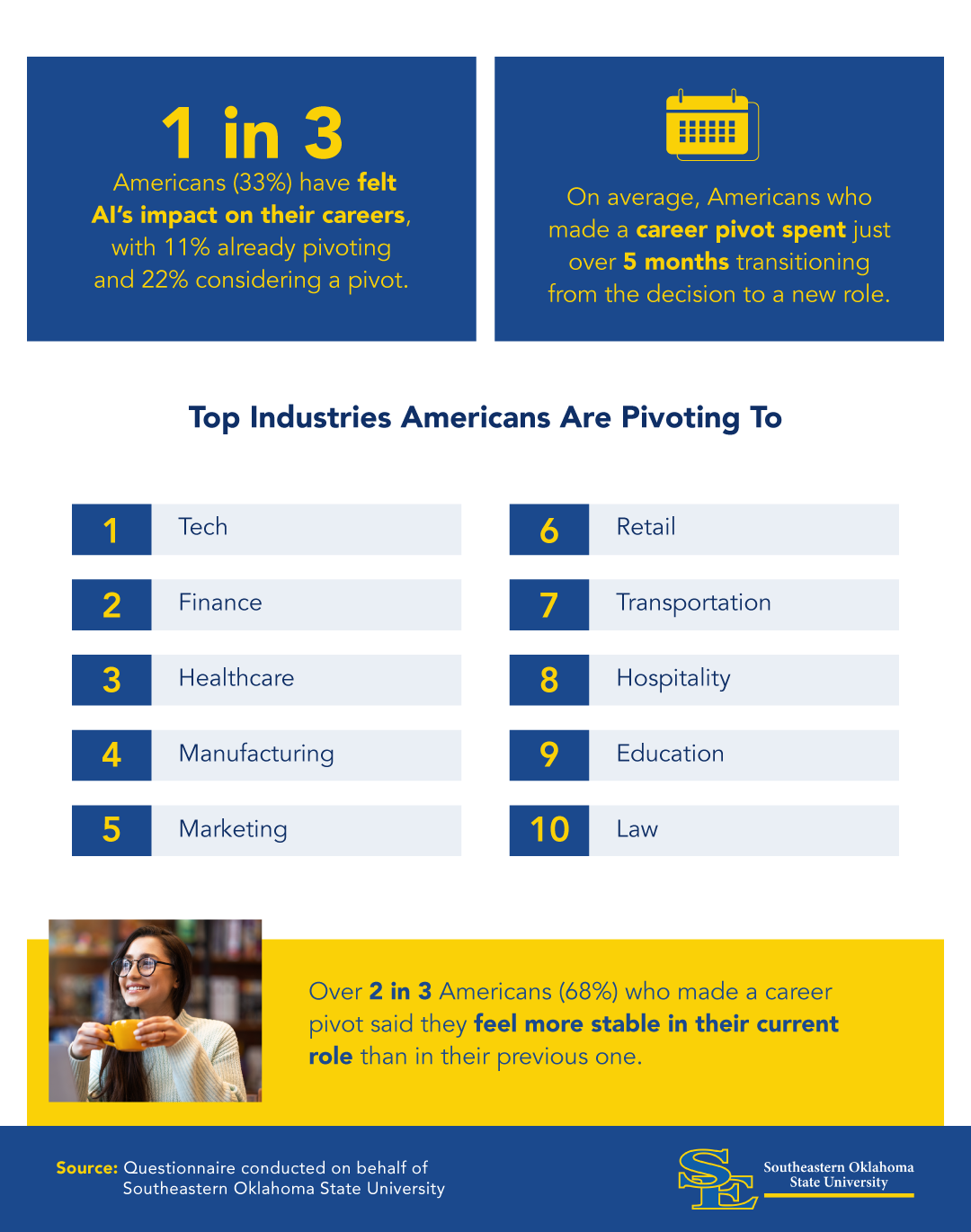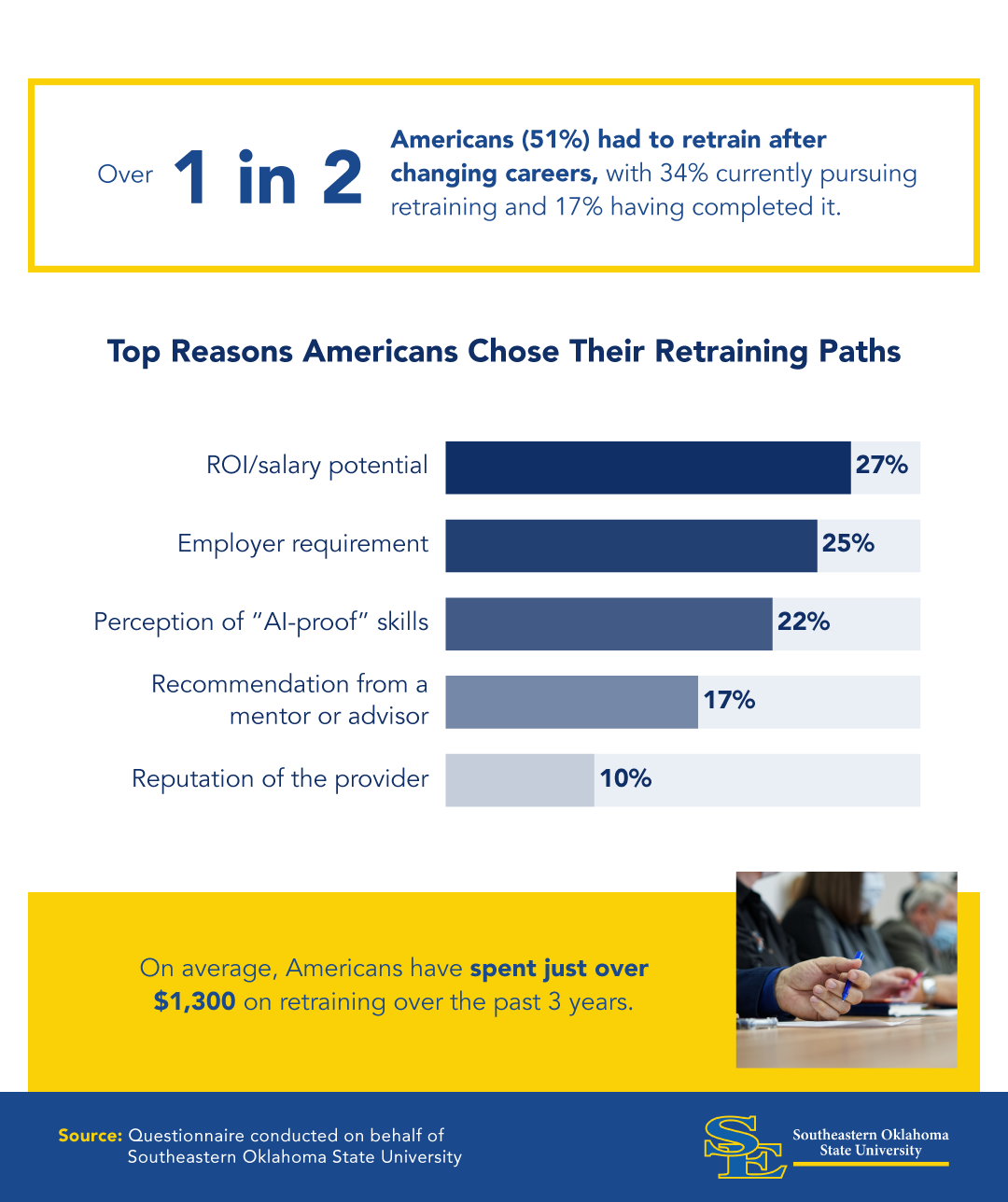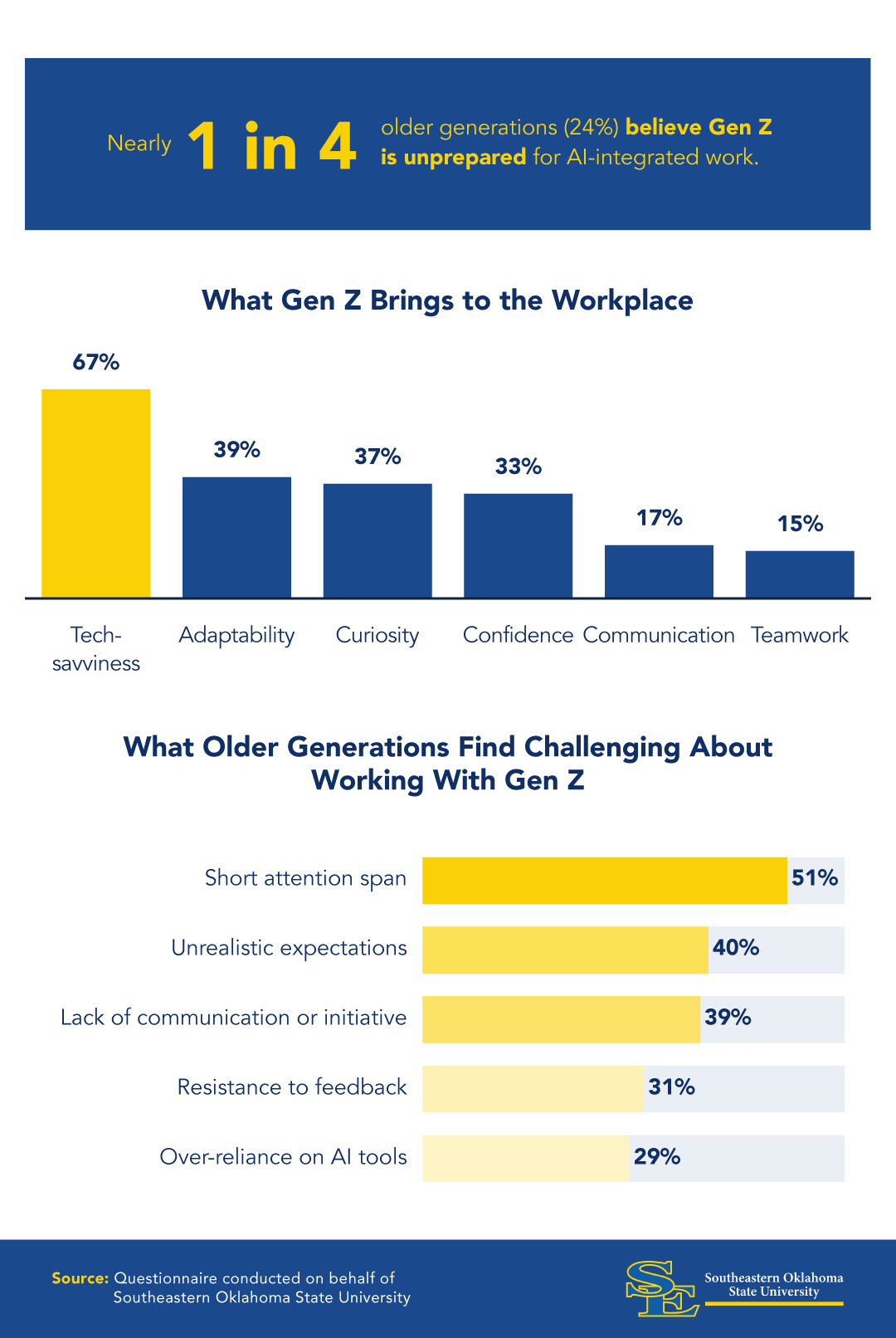
More people than ever are thinking about their future careers, and for many, artificial intelligence (AI) is part of the reason why. Whether it’s learning new skills, switching industries or exploring fresh opportunities, workers across all generations are making big decisions to stay prepared in a changing world. This study, based on a questionnaire of 1,000 Americans, takes a closer look at how AI is influencing career moves, retraining efforts and even workplace relationships.
Key Takeaways
- Over 1 in 10 Americans (11%) say they’ve already made a pre-emptive career pivot due to AI concerns in the past three years.
- 1 in 7 Americans (15%) believe they’re “smarter than their boss” thanks to their AI skills.
- Americans have spent an average of $1,340 on retraining over the past three years due to concerns about AI.
- Nearly 1 in 2 Americans (46%) say their current level of AI-related skills contributes to their sense of job stability.
- Just over half of Americans (53%) feel confident that upskilling will help them remain “AI-proof” for at least the next five years.
Where AI Is Guiding Career Pivots
Across the country, AI is influencing major professional moves, especially for those seeking better job security or new opportunities.

One-third of Americans reported that AI has already impacted their careers. About 1 in 10 (11%) have made a career pivot in response, and another 22% are seriously considering one. On average, people spent just over five months transitioning from the decision to the start of their new roles. More than 1 in 3 Americans (37%) said their pivot took six months or longer.
Among those who made the leap, 68% said they now feel more stable in their current positions than they did in their previous roles. This sense of security was strongest among Generation Z (74%), followed by millennials (69%), Generation X (65%) and baby boomers (63%). Yet, since making a career change, some (27%) have experienced impostor syndrome — feelings of self-doubt or not belonging in their new role, even when they’re qualified.
Industry-wise, Americans are most often switching to careers in tech, finance and healthcare. People are also shifting into manufacturing, marketing and retail, all fields that are either driving or adapting quickly to AI innovation. Despite AI advancements, nearly 70% of Americans believe their current job will still exist in five years.
The Rising Cost and Purpose of Retraining
For many, AI-driven career change means investing in new skills. But what motivates that investment?

More than half of Americans (51%) have had to retrain after changing careers. About one-third were currently enrolled in retraining programs, and 17% had completed one. Retraining was most common among Gen Z, with 57% taking part. Gen X followed at 51%, then millennials at 50% and baby boomers at 41%. Over half of all respondents (55%) said they paid for retraining out of pocket.
The average person spent just over $1,300 in the past three years on developing new skills. Baby boomers had the highest costs at $2,670, while younger generations spent less as follows: Gen Z ($1,838), Gen X ($1,206) and millennials ($1,191). Overall, 53% were confident that their new skills would protect their careers for at least the next five years. Nearly half (46%) said their current level of AI-related skills contributes to their sense of job stability.
Salary potential was the top driver behind retraining, followed closely by employer requirements and the desire to build “AI-proof” abilities. Others cited encouragement from mentors or the reputation of the program provider.
Generational Tensions Around AI and the Workplace
Different generations are bringing their own strengths — and frustrations — to today’s workplaces. As new AI tools and habits take hold, some employees are finding it harder to see eye to eye.

Nearly 1 in 4 older-generation employees (24%) said they believe Gen Z is not prepared for AI-integrated work. When working with Gen Z, they found their short attention spans, unrealistic expectations and lack of communication to be the most challenging.
At the same time, 59% of Gen Z felt well-prepared for the AI workplace, and 63% reported relying more on AI than on human mentors or managers. When they needed help, 57% of Gen Z regularly turned to AI tools like ChatGPT instead of a colleague. Many millennials (56%), Gen X (54%) and baby boomers (48%) did the same.
Interestingly, 15% of all Americans, including 17% of millennials and 16% of Gen X, said they feel “smarter than their boss” because of their AI knowledge. That sentiment was also shared by 12% of Gen Z and 7% of baby boomers.
Navigating the Future of Work With Confidence
As AI continues to alter the way people work, it’s also affecting how they learn, retrain and interact in the workplace. From career pivots to upskilling investments, Americans are making big decisions in response to rapid technological change. Generational differences add another layer to the challenge, but the data shows that workers of all ages are engaging with AI to stay relevant and confident in their careers.
Methodology
Risepoint conducted a questionnaire of 1,000 Americans to uncover how artificial intelligence is accelerating career pivots across the U.S. The average age of respondents was 39; 46% were women, 54% were men and 1% were non-binary. Generationally, 3% were baby boomers, 29% were Gen X, 53% were millennials and 15% were Gen Z. Due to rounding, some percentages in this study may not total 100% exactly.
About Southeastern Oklahoma State University
Southeastern Oklahoma State University offers affordable, flexible online degree programs designed for working adults navigating a rapidly changing job market. Whether you’re retraining for a new role or building skills to stay competitive, Southeastern provides accessible pathways to career advancement.
Fair Use Statement
This content is for educational and noncommercial use only. If you share or reference this article, please link back to Southeastern Oklahoma State University and provide proper attribution.